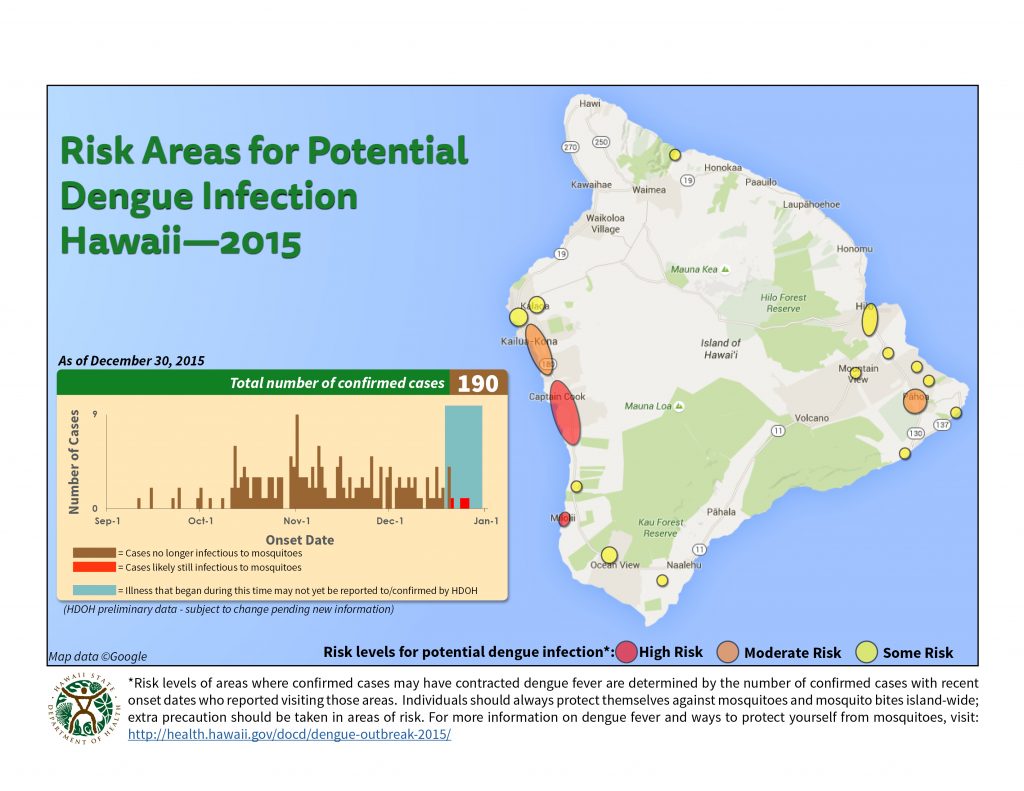After a couple days lull in reported dengue fever infection reported on Big Island, the Hawaii Department of Health (HDOH) reported eight additional cases on Wednesday, bringing the outbreak total to 190. The vast majority of cases have been reported in Hawaii residents with about one out of 10 being seen in visitors to the Aloha State.
Dengue Fever is a virus that is transmitted from an infected person to a mosquito, which can then infect another person. The HDOH says in Hawaii, the Aedes aegypti (Yellow Fever Mosquito) and Aedes albopictus (Asian Tiger Mosquito or Forest Day Mosquito) carry the dengue virus. Other Aedes members can transmit dengue, but are not found in Hawaii. These mosquitoes are most active in the early morning after daybreak and the late afternoon before sunset.
Aedes albopictus adults usually rest out of doors, in places such as in bushes, but they can be found indoors in houses and other dwellings. Aedes aegypti are most commonly found indoors, and only occasionally outdoors in garden vegetation. These mosquitoes travel less than 200 yards.
They offer the following recommendations to reduce mosquitoes around your house:
- Remove or empty anything that catches or holds standing water, such as old tires, flowerpots, toys, buckets, and plastic tarps on your premises.
- For plants that hold water, flush with a hose or spray with soapy water once a week.
- Use mosquito-eating fish, such as guppies, in unused swimming pools, constructed fish ponds with no outlet to the environment, or other large containers that cannot be removed or emptied of standing water. To protect Hawaii’s rare native species and aquatic habitats, do not release guppies or other alien species into the natural environment.
- Install or repair window screens and doors to keep out mosquitoes. Screens are your best protection against mosquito nuisance in your home.
- Clean your gutters. Remove leaves and debris so water will drain freely.
In addition, to protect from mosquito bites, Children and adults can wear clothing with long pants and long sleeves while outdoors. DEET or other repellents such as permethrin (not registered for use on skin) can also be applied to clothing, as mosquitoes may bite through thin fabric. Mosquito netting can be used over infant carriers.

Related:


http://www.tigermaze.com